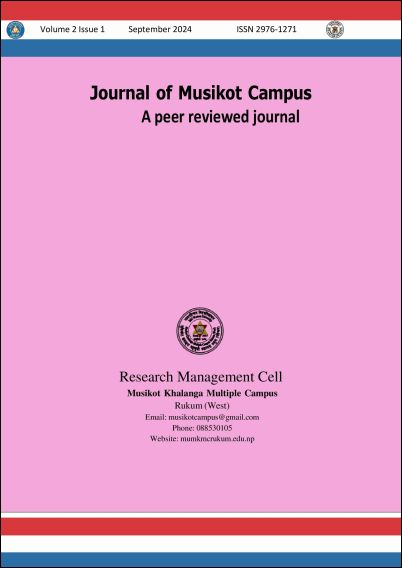Determinants of Economic Wellbeing Among Cooperative Members in Rolpa District, Nepal
DOI:
https://doi.org/10.3126/jmc.v2i1.70840Keywords:
Cooperatives, cooperative landscape, economic well-beingAbstract
The present study has been conducted to assess the impact of cooperatives on the economic well-being of their members. The descriptive and causal-comparative study design is adopted with a deductive approach. Data were collected from a total of 404 respondents who are members of different cooperatives in Rolpa District of Nepal. This was done by using the non-probability convenience sampling method. Descriptive analysis was done for measuring the central tendencies of the variables with the help of data sourced chiefly through Likert scale surveys. The Pearson correlation and multiple linear regression models were computed in order to get a proper understanding of what factor has an influence on economic wellbeing. In the present case, it was found that the independent variables explained around 53.50 percent of variation in economic well-being, definitely significant in its effect.
The results exhibited a positive relationship with all the independent and dependent variables, thus offering evidence on the large share cooperatives contribute to improved economic wellbeing. Some of the key factors were participation by members, savings, and credit services, provision for financial literacy training, and financial inclusion, which had a positive and statistically significant effect. On the other hand, health and social services had a positive effect but did not have a statistically significant impact on economic well-being. These results show the very relevant contributions of cooperatives in driving economic prosperity for their members.
This study concludes that cooperatives are powerful tools for effectively making positive improvements to the economic welfare of members. This gives valued insights for policymakers, cooperative organizations, researchers, and cooperative members toward better economic outcomes and critical decisions about cooperative activities in Nepal. These findings certainly provide a case for increased support and development of cooperative institutions to maximize their beneficial impact on members' economic well-being.




